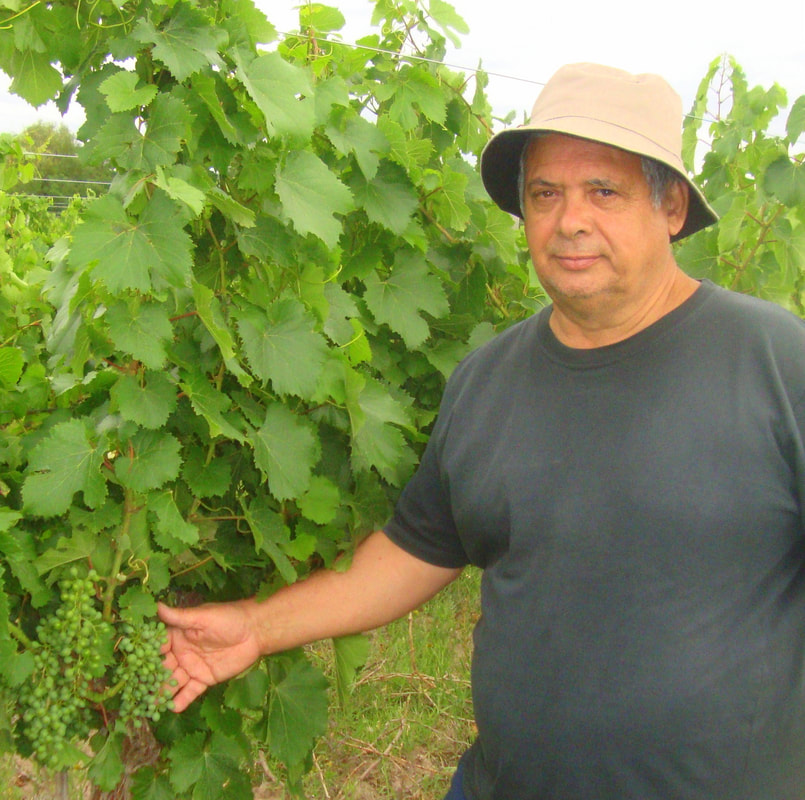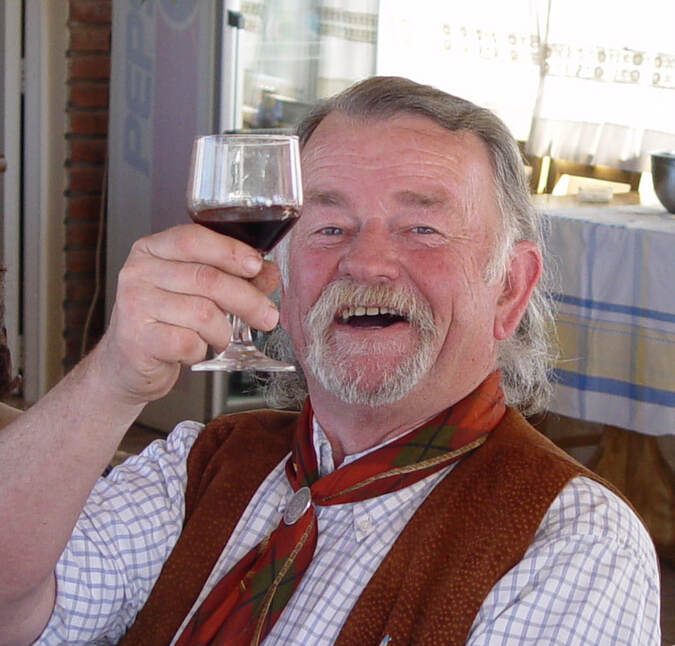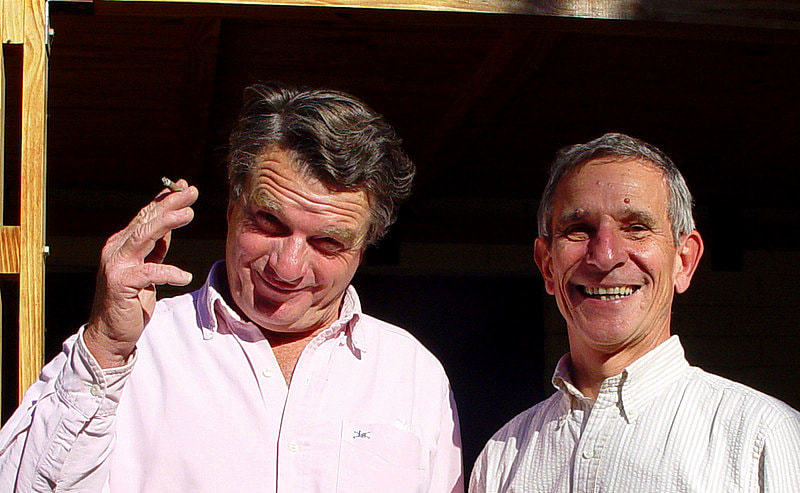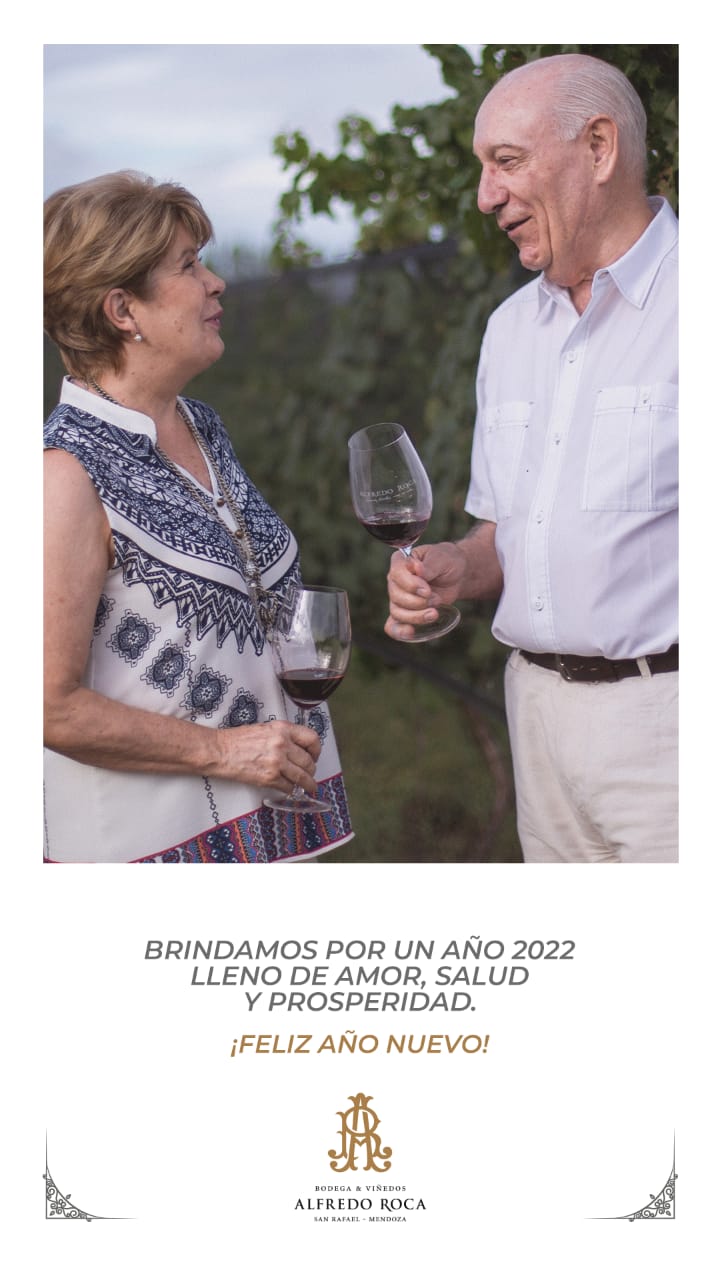Confessions of an Accidental Wino - Episode 4 - by Ronald Mackay
The Ring of Truth
Uneasiness invariably grips me when I adopt a new role -- and believe me, I’ve played many diverse roles during my many decades of wandering this earth! Initially, I suffer the uncertainty of the interloper and so exercise the caution of the trespasser. Unsure that I’ve earned my new title, I’m reluctant to adopt it. Never was my trepidation greater than when I became an Accidental Wino!
In those early days in Argentina, I hesitated to introduce myself as a ‘viñatero’ -- ‘one who grows grapes and produces wine’. The Spanish word has an impressive ring to it. Four sonorous syllables; four mellifluous vowels. More glamorous than the two-syllable staccato, ‘vintner’! ‘Viñatero’ conjures up the image of a rustic figure in worn corduroys and faded blue shirt, wise in country ways, tanned from the ripening sun; of quiet days in leafy vineyards and cool corners of fragrant wineries.
The word takes me back to that drowsy Scottish afternoon at the Morgan Academy when our teacher suggested we close our eyes and let our minds stray as she read aloud Keats’ Ode to a Nightingale:
O, for a draught of vintage! that hath been
Cool'd a long age in the deep-delved earth,
Tasting of Flora and the country green,
Dance, and Provençal song, and sunburnt mirth!
O for a beaker full of the warm South,
Full of the true, the blushful Hippocrene,
With beaded bubbles winking at the brim,
And purple-stained mouth.
Cool'd a long age in the deep-delved earth,
Tasting of Flora and the country green,
Dance, and Provençal song, and sunburnt mirth!
O for a beaker full of the warm South,
Full of the true, the blushful Hippocrene,
With beaded bubbles winking at the brim,
And purple-stained mouth.
Still uneasy in my new role, I sought markets for our 2005 Cabernet Sauvignon. All 20,000 bottles were stored, at a mounting monthly cost to Viviana and me, in a cool corner of El Rosal, a winery on the dusty outskirts of San Rafael.
Doubts plagued me. ‘At heart, I’m a grower of grapes, not a producer of wine! How did I become an Accidental Wino? (Patience, Reader! I promise I’ll tell you how this misadventure came about.) What if we don’t succeed and we’re stuck with renting a cellar full of unsold wine?
In the initial exciting flush that accompanied owning our own label, we would present bottles to friends, free of charge. Alas, their congratulations were insufficient to convince us – me, at least -- that I was no longer a simple grape-grower, but an accidental producer of wine challenged to sell this year’s vintage to finance next year’s.
Underpinning my free gifts was a self-serving motive -- to boost my own confidence. I needed to hear encouragement from those most likely to wish us well.
A second, more fanciful motive went like this: ‘Our Argentine friends will appreciate the superiority of our brand. They’ll extoll the virtues of CALEDONIA throughout the land. Sales soaring, we’ll recoup our 2005 investment and so have cash enough to bottle our 2006 vintage.’
I sent free cases of wine to the ancient Scottish community in Buenos Aires. At weekly asados closer to home in San Rafael, I uncorked our CALEDONIA before friends could open their wine. I sold bottles at cost. Alas, my ploys didn’t swell sales. Friends still turned up with well-established labels like Bianchi, Goyenechea, Suter, Roca, Labiano, and Murville.
Discouraged, I talked with Michael Stuart, an Argentine whose Scottish ancestry went back generations. Michael had been in business, grew fruit, and so understood my challenge.
“The Scottish community in Buenos Aires is conservative,” he explained. “They’ll see your brand as making an undeserved claim: ‘The Scottish Tradition from Argentina!’. You and Viviana are newcomers. Your boldness will disconcert them. Find export markets!”
Although my Scottish great-grandfather had come to Argentina in the 1890s to build railroads and Viviana’s Italian grandfather had surveyed Andean valleys to catch snowmelt for irrigation and later designed and built the most beautiful bank in San Rafael in the 1920s, I saw Michael’s point. He continued, “Most Argentines developed their own preferred wine years ago. Don’t take it personally if they overlook yours!”
Michael’s advice helped. Nevertheless, while I hunted relentlessly for export markets, I still promoted CALEDONIA locally.
Despite my efforts, I continued to feel like an imposter.
Three milestone moments helped me overcome my imposter syndrome and persuade me that I might just be approaching the right to the title of “Viñatero”.
***
A first milestone moment
The Good Lord broke the mould after creating Charlie Balbi. Charlie came from Scottish, Irish and Italian roots. He’d grown up on an estancia and identified as a gaucho, an Argentine cowboy. He lived close to the Bodega Alfredo Roca, in a solitary cottage surrounded by pink rambling roses and guarded by a ferocious Rottweiler. He’d worked in the wool trade in Yorkshire, in enterprises in West Africa, and now boarded his riding horses at Mike and Olga’s Estancia La Diamantina. Charlie loved company, barbecued enormous steaks, and enjoyed wine with friends. Fortunately, he had many, so no single friend was obliged to match his consumption. Charlie and I took to each other. He hosted me once a month.
On an early visit, I took two bottles to Charlie’s. While grilling steaks, he gave our CALEDONIA an enthusiastic reception. “Delicious! How much for a case?” I told him. “Bring two next time!” From his wallet, he peeled two one-hundred-peso bills.
“Yours is the largest order I’ve received since our launch,” I was amazed.
“Make it three cases!” He peeled off a third bill.
Despite his hard-bitten manner, Charlie was warm-hearted and sentimental. He had literary talents and would read the poetry and the stories he’d been writing about his childhood and his time as a gaucho high up in the Andes where cattle grazed on tender summer grass. At our annual Burns Supper, Charlie, a tear in his eye, would launch into My love is like a red, red rose to the delight of his true love and his many friends.
Charlie’s open-hearted affection and his enthusiastic endorsement of our wine increased my confidence as both viñatero and fellow being who loved Argentina despite its political and economic snares.
***
A second milestone moment
Shortly after we’d applied to the Argentine regulatory authorities for our export permit, there came a drum-like beating on our door.
“I’m a Customs and Excise investigator. Is this the business of Fincas CALEDONIA S.A.?” The unsmiling man was short but heavily built. His question sounded like a threat.
“It is.” I matched his tone.
“I am authorised to inspect your premises and the articles of incorporation of your business. I will determine the legitimacy of your export application.” He thrust at me an ID bearing his name, Emilio Araujo, and the emblem of the notorious AFIP -- Administración Federal de Ingresos Públicos – the unfathomable Argentine institution charged with tariffs, duties, and taxation.
I employed diplomacy to subdue his menacing behaviour and Emilio, as he soon insisted we call him, was seated contentedly with Viviana on one side and me on the other, a glass of wine in his hand. Satisfied with our bona fides, he regaled us with stories of the reprobates he dealt with as an investigator. Argentina isn’t known as a law-abiding country. Emilio’s stories served to underline the turpitude that underlay its failure as a modern nation.
Emilio lived in a neighbouring street and over time we became friends. He allowed me to read a draft of his satirical novel El País de los Caníbales. In its pages, he brilliantly exposes the skulduggery of Argentine politics and the self-serving bureaucracy that prevents a great country from flourishing.
One day he announced, “I retired yesterday. Now I’ll act as your sales agent and market CALEDONIA in cities where I have connections.”
Emilio’s offer came as a welcome surprise. Here was an energetic ex-senior public servant with faith enough in our business to volunteer as our ambassador.
We agreed on terms. Every week, Emilio would load his pickup with cases of our wine, pay us in cash, and drive off to supply thirsty clients.
Wasn’t having such a well-connected professional to serve our business, evidence that we were now on our way to earning our titles as viñateros?
***
A third milestone moment
Regulations governing the export of wine demanded I deal with countless departments of Argentina’s baffling banks and bureaucracies. We – like other exporters – engaged the services of private intermediary organizations to help us negotiate the regulatory inconsistencies that made exporting a managerial nightmare.
One of these was Marín Despachante de Aduana (Marín Customs Brokers), an agency specialising in preparing the documents required before a pallet of wine could be picked up from the winery and driven a thousand kilometres to a waiting ship in either Argentina or Chile. The agency was operated by the supremely unflappable Señor Marcos Marín, his daughter Cecilia, his son, and a dozen dedicated employees. They provided an informed, exact, and impeccably courteous service.
If I arrived just as Marie Carmen, the competent agent assigned to us, was unlocking the office, I’d be guaranteed swift service regarding the next steps towards satisfying bureaucratic demands.
One morning, I arrived at Marín confident that I was close to overcoming the final obstacle that stood between me and exporting our first pallet of 80 cases of wine to Poland. A prestigious local viñatero had arrived first. I recognised him as Alfredo Roca, founder-owner of the winery Bodega Alfredo Roca close to where Charlie Balbi lived. Señor Roca had a sound reputation as a self-made viñatero building a thriving business through his own and his family’s efforts. Respectfully, I withdrew from where he sat with Marie Carmen, to the waiting area.
“Isn’t that the Scotsman who recently bought a vineyard?” I heard him ask. “What brings him here?”
“We’re assisting Señor Ronald with an export to Poland, Señor Roca.”
“Tell him to come in!”
Marie Carmen gestured me over. Señor Roca rose and introduced himself. “You are exporting?” I detected surprise in his voice.
“We’re finalising our first export order,” I replied, still feeling inadequate to my role.
Señor Roca scrutinised me. “How long have you been in Argentina?”
“Almost two years,” I told him. “My wife and I started growing grapes, but prices were so poor that we converted our second harvest into wine. Now I must find markets.”
“After only two years you’re already exporting?” Señor Roca regarded me with growing respect. “Marketing is a challenge. Exporting is the greatest challenge. Congratulations! Like me, you have learned the secret: Aguantar! – Persistence!”
He shook my hand again. “Aguantar, Señor Mackay. In our country, persistence is essential!”
In that gratifying moment, I saw sincerity in his eyes and heard the ring of truth in his voice. I was included! My confidence mounted. ‘Might I now have earned a place alongside other hard-working and determined viñateros in this beautiful fine-wine grape-growing province of Mendoza?’
Ah! Were it so simple!















